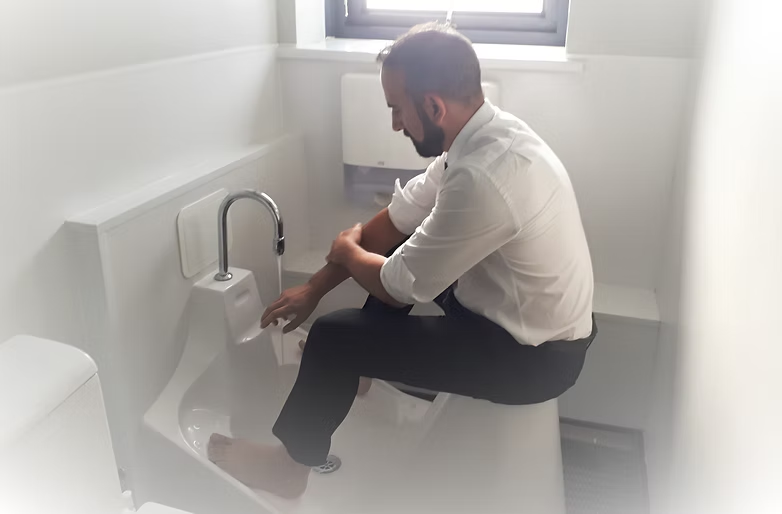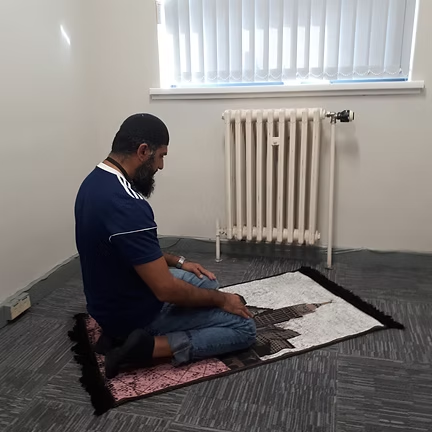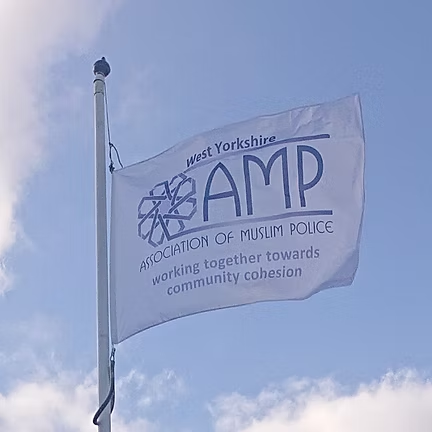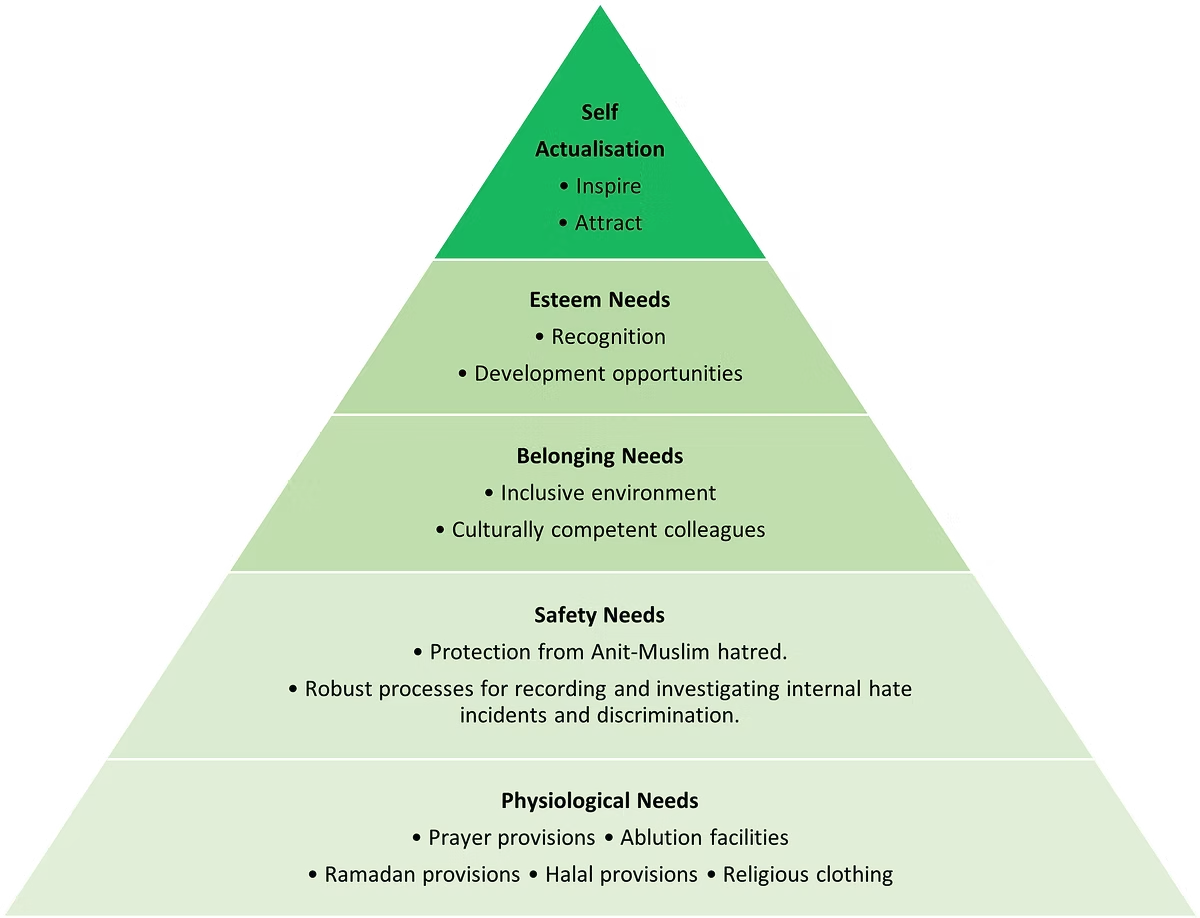Building an Inclusive Environment
NAMP is continuously working to make the police service a more welcoming and supportive workplace for Muslims. Through local networks and national guidance, we have delivered several key initiatives.
Driving positive change and inclusivity within policing.
In 2020, the first-ever NAMP survey identified key priorities for our members. The findings helped shape our core workstreams: tackling Anti-Muslim Hatred, clarifying Counter-Terrorism terminology, and boosting Muslim Representation. Alongside these, we are constantly launching new initiatives to build a more inclusive workplace for all.
NAMP is continuously working to make the police service a more welcoming and supportive workplace for Muslims. Through local networks and national guidance, we have delivered several key initiatives.


We worked with the College of Policing to develop national guidance ensuring all forces can provide appropriate facilities for daily prayers, a cornerstone of the Islamic faith.
View Prayer Guidance
To support officers fasting during Ramadan, we co-created guidance on workplace adjustments for shifts, sleeping patterns, and prayer, helping maintain wellbeing and operational effectiveness.
View Ramadan Guidance
Ensuring access to Halal food is vital. We are developing guidance for forces on providing permissible dietary options during events, courses, and operational duties.

We have championed uniform projects to meet religious needs, resulting in several approved headscarf (hijab) options and modesty tunics for female officers across the UK.

Our work also includes mentoring programs, Islamic awareness training, public campaigns like #iammuslim, and promoting faith-inclusive policies in forces nationwide.
Providing guidance and support to the police service in challenging Islamophobia.
Read the Full NAMP Guidanceof all religious hate crimes in 2021/22 were directed at Muslims.
of NAMP members experienced Islamophobia within the police service in 2020.
Muslims are the UK's second 'least liked' group, according to a University of Birmingham study.
“Prejudice towards Islam and Muslims stands out in the UK... because it is much more widespread than most forms of racism... and more common among those who are wealthier and well-educated.”
Due to its prevalence, tackling Anti-Muslim hatred is a top priority for NAMP. We are producing a major guidance document with the College of Policing and NPCC to provide practical guidance on recognising and dealing with Anti-Muslim hate crimes, discrimination, micro-aggressions, and biases.
NAMP uses the following definition:
"Anti-Muslim hatred encompasses a range of negative perceptions and attitudes towards Muslims. This may be expressed as a prejudice against and/or hatred towards Muslims, taking the form of rhetorical, physical or discriminatory behaviour. It may be directed towards Muslim or non-Muslim individuals, the wider Muslim community and/or Muslim property."
If you experience anti-Muslim discrimination within the police service, you should report this via your force's Professional Standards Department.
If you are a victim of anti-Muslim hatred, you have several options for reporting:
Working to address concerns and improve understanding between policing and Muslim communities.
The 2020 NAMP survey revealed significant concerns from our members regarding Counter Terrorism policing. Many felt the Prevent programme disproportionally targets Muslims and that a lack of Islamic understanding within CTP creates barriers. The survey highlighted two key areas:
of Muslim police respondents believe CT terminology has a direct link to Islamophobia.
of Muslim community respondents believe the same.
This creates negative biases, leaving Muslims feeling vulnerable to hate crime and discrimination.
Recognising the risk and upset these terms cause, NAMP has actively worked to influence change. Since 2019, we have voiced concerns and submitted evidence to key bodies, including:
To bridge the understanding gap, NAMP delivers specialised training packages for the police service. Led by trained Muslim officers, these sessions clarify beliefs, dispel myths, and address common misconceptions from an operational perspective. This successful program is now delivered in several forces nationally.
Building a service that truly reflects the communities it serves.
Our 2020 survey revealed a common theme: concerns about Islamophobia and Racism are deeply embedded within policing. These issues create significant barriers for attracting and retaining Muslim talent. While some forces are making efforts, a holistic, national approach is required.
Despite recruitment campaigns, many Muslims leave the service due to negative experiences. This creates a cycle where their accounts discourage new applicants. To break this, a solid support structure that meets the needs of Muslims is essential for both attraction and retention.
Using Maslow’s hierarchy of needs as a model, we can understand what's required. While physiological and esteem needs are often met, there's a tendency to neglect Safety and Belonging needs. This can leave Muslim officers and staff feeling vulnerable, unwelcome, and not part of the team.

NAMP is working with the National Police Chiefs' Council, College of Policing, and local forces to deliver recommendations from our survey. These aim to create a more inclusive environment for Muslims.
Read the NAMP 2020 SurveyDespite the challenges, a career in policing is exciting and rewarding. We need more Muslims to make a positive difference. If you're interested in joining, please visit the official recruitment site.
Visit JoiningThePolice.co.ukNAMP are always keen to work with Police forces to establish local Muslim networks. If your area is not listed and you are interested in affiliating with NAMP, please get in touch to set up an association within your organisation.
JOIN NAMP >Please do not report crimes via this website.
For non-emergencies please call 101 to speak with your local police service. For emergencies, please call 999.
For hate crimes either contact your local police force or you can also report via True Vision.
For the Police Integrity Line please call 0800 111 4444 or visit: The Police Integrity Line | Crimestoppers